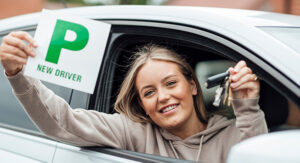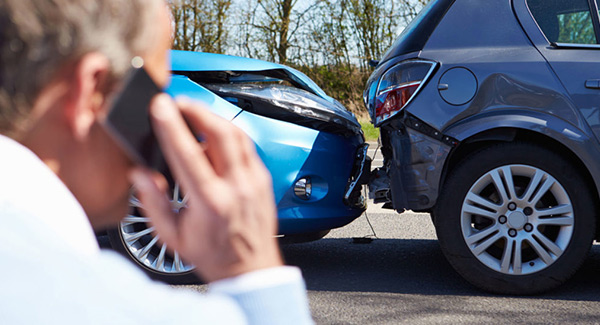Hit by an uninsured driver: Here’s what you need to do
- Editorial Team
According to the Motors Insurers’ Bureau (MIB), someone in the UK is hit by an uninsured or hit-and-run driver every twenty minutes. It’s important to note that it is not always obvious when someone is driving uninsured.
Knowing what steps to take is crucial if you’re involved in an accident with an uninsured driver. Here’s what you need to know.
What to do if an uninsured driver hits you?
It’s vital to gather as much information as possible about the accident, including:
Note when the accident occurred
The time and date of the accident.
The name of the other drivers
Obtain the name of the other driver involved in the accident. It’s essential to have this information for reference and documentation purposes.
The address of the other driver
Request the address of the uninsured driver. This information will be necessary when filing a report or contacting relevant authorities or legal representatives.
The contact number of the other driver
Ensure you have the contact number of the uninsured driver. This will allow for communication regarding the incident or any further actions that may need to be taken.
Vehicle Make, Model, and Registration Number
Take note of the uninsured driver’s vehicle details, including the make, model, and registration number. This information will be vital for insurance claims or any legal proceedings that may follow.
Identify any witnesses
If there were any witnesses present at the scene, gather their contact information as well. Witnesses can provide valuable testimonies and support your claim if the uninsured driver disputes the events.
Take Photos of the accident scene / Review CCTV
Take photos of the accident scene, including the position of the vehicles involved, damages sustained, and any relevant details. If there are any nearby CCTV cameras, note their locations, as they could provide additional evidence.
Sketch how the accident took place
Create a simple sketch or diagram illustrating the accident scene, including the positions of the vehicles, traffic flow, and any other relevant elements. This can serve as a visual aid when explaining the incident to your insurance company or legal representatives.
Remember, it’s crucial to promptly report the accident to both the police and your insurance provider, providing them with all the gathered information. Then, they can guide you on the necessary steps to take next, such as making a claim or seeking legal assistance, to handle the situation effectively.
What happens if someone hits your vehicle and drives away?
A hit-and-run accident is where a driver involved in an accident leaves the scene without stopping to provide their details or assist anyone who may be injured. Unfortunately, hit-and-run accidents are common, especially when the other driver is not insured.
If someone hits your vehicle and drives away, here is what you should do.
- Stop the car in a safe place, ideally to the side of the road, ensuring it does not impede other vehicles. Remember, failing to stop after an accident is a criminal offence, regardless of whether there are injuries or property damage.
- If possible, gather crucial information, such as the driver’s number plate, as well as the make and model of their vehicle. Additional details like the direction the vehicle was heading, as well as the time and location of the accident, are also important. Installing a dash cam into your vehicle can be beneficial in such circumstances.
- If someone is injured, promptly contact the emergency services for immediate assistance.
- If there are no injuries, contact the police, and they will provide you with a crime number.
- Seek out potential eyewitnesses who can provide an account of the incident and obtain their contact information. This becomes particularly important if you were not present or near your vehicle during the collision.
- Take photos of any damage to the vehicle.
- Notify your insurance provider as soon as possible. They will guide you through the process.
- Do not attempt to pursue the fleeing driver. Leaving the scene of the accident may deprive you of potential eyewitnesses. It may lead the police to consider you partially responsible for the incident.
- Do not delay in contacting the police or your insurance company.
- If you’re parked on the hard shoulder, refrain from remaining inside your vehicle. Instead, find a safe area away from the road.
Should you inform the police if hit by an uninsured driver?
You should inform the police if you’re hit by an uninsured driver, even if it seems like a minor incident. Reporting an uninsured driver to the police may help you get the compensation you deserve, protect other road users and ensure that the uninsured driver is held accountable for their actions.
Also, be mindful that failing to report an uninsured driver is an offence. The police will document the accident and create a report.
Can you claim against the uninsured driver?
If the other party was at fault and you have suffered injury or damage to your vehicle, you may be able to pursue legal action to recover your losses. You should speak to a solicitor for legal advice. Most solicitors work on a no-win no-fee basis, which means there are no fees to pay if a claim is unsuccessful.
You can also go through your motor insurance provider if you have a comprehensive policy. However, you won’t be able to make a claim through your insurer if you only have third-party or fire and theft cover.
Compensation
If an uninsured driver has hit you, you can make a claim to the Motor Insurers’ Bureau (MIB) for compensation. The MIB will investigate the claim and determine whether you are eligible for compensation.
To make a claim, you must provide as much information as possible about the incident, including the date, time, and location, the make and model of the other vehicle, and details of any injuries or damage sustained.
If your claim is successful, the MIB will pay you compensation in line with the terms of their agreement.
Alternatively, you can go through your insurer.
Can you be uninsured when driving other vehicles without knowing?
Many individuals mistakenly assume that their comprehensive policy covers driving other vehicles, but this is often not the case. Typically, your car insurance will only protect you while driving the specific vehicle listed on the policy. The exception to this rule is when your policy includes a driving other cars (DOC) clause, allowing you to operate other vehicles.
Driving a vehicle without valid insurance can result in serious consequences. If caught, you may face a fixed penalty fine of £300 and receive six penalty points on your driver’s license.
In more serious cases that proceed to court, the penalties can include an unlimited fine and a driving disqualification.
What happens if you hit an uninsured driver?
If you hit an uninsured driver, you should first ensure that everyone involved in the accident is safe and call the emergency services if necessary.
You should also contact your insurance provider about the accident, regardless of whether you intend to make a claim. Your insurance provider can advise you on the next steps and whether you need to make an uninsured driver claim.
If you have an accident that causes damage or injury, you must provide your details to anyone with reasonable grounds for requiring them. You must also report the accident to the police within 24 hours if you did not do so at the time of the accident.
How to check if you’re insured?
In the UK, you can check the insurance status of any vehicle you own, through the Motor Insurance Database (MID). The MID is a national database containing information about insured vehicles across the UK. By checking the MID, you can quickly and easily determine if your vehicle is insured, and it helps to ensure that all drivers on the road have valid insurance.
To check your own insurance status, simply use the search bar on the MID website and enter your vehicle registration number. In some cases, the search results may also include details about the make and model of the vehicle if the insurer has provided this information.
Driving a vehicle on public roads in the UK without insurance is illegal, so it is crucial to ensure that you have valid insurance coverage before driving your vehicle.
Will you lose your no-claims bonus if an uninsured driver hits you?
If an uninsured driver hits you, you may lose some or all of your no-claims bonus if your insurer cannot recover the costs of the claim.
Some policies include an uninsured driver’s promise. An uninsured driver promise ensures that your no-claims bonus is restored, and your excess is refunded if you experience an accident with an uninsured driver that wasn’t your fault. This guarantee is often included in fully comprehensive policies. However, it’s important to note that not all insurance providers offer this benefit. Therefore, when selecting a policy, checking whether an uninsured driver promise is included is advisable.
What are the penalties for driving without insurance?
Driving a vehicle on a public road without valid insurance is against the law. If you are caught driving without insurance, you could face a fixed penalty fine of £300 and receive six penalty points on your licence. In more serious instances where the case proceeds to court, the consequences can be even more severe, including an unlimited fine and a disqualification from driving. Additionally, law enforcement authorities can seize or, in some instances, even destroy a vehicle that is driven without insurance.
If you are not using your vehicle and it is being kept on private property, you can declare it off the road by submitting a Statutory Off-Road Notification (SORN) to the Driver and Vehicle Licensing Agency (DVLA).
How long do you have to make a claim against an uninsured driver?
When making a claim after an accident, there are some important timelines to remember. For example, if you’re claiming for personal injury, you must submit a claim within three years from the date of the accident. However, if you only claim for property damage and live in England or Wales, you have six years to submit your claim.
Passengers, pedestrians, and cyclists involved in an accident with an uninsured driver can also make a claim. However, the Motor Insurers’ Bureau (MIB) may reject the claim if they have reason to believe that the victim was aware that the driver was uninsured at the time of the accident.
How does being hit by an uninsured driver affect insurance premiums?
Making a claim against an uninsured driver or being involved in an accident with one may affect your insurance premiums. Insurance companies consider various factors when determining premiums, and an accident with an uninsured driver can contribute to potential changes in your premiums.
Final thoughts
Getting hit by an uninsured driver can be a stressful experience. Fortunately, there are processes to help ensure you are not left out of pocket.
Learn more
Share this article
Table of Contents
More posts
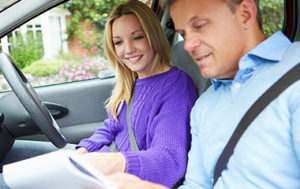
Can You Take Your Driving Test In Your Own Car | A Choice
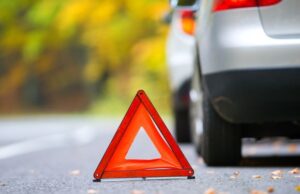
What To Do After A Car Accident | A Choice
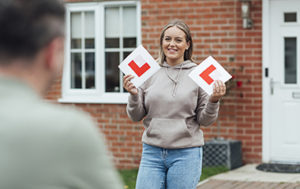
L Plates: What You Need To Know Before You Drive | A Choice
